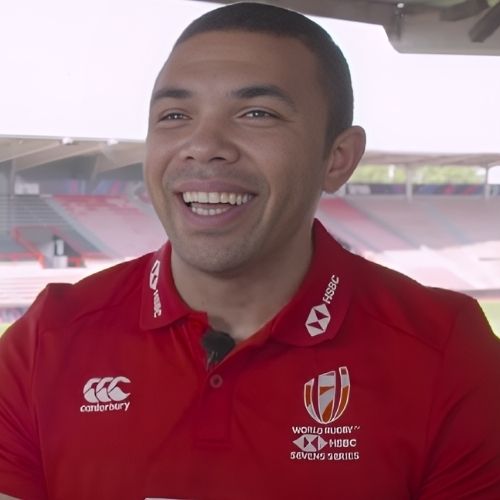
South Africa has a rich history of sports, with talented athletes who have represented the country on the global stage. Many of these athletes have amassed significant wealth through their careers, making them some of the wealthiest individuals in the country.
Key takeaways
- Wealth Diversification: South Africa’s top athletes have grown their incomes beyond sports through business ventures and endorsements, considerably boosting their net worth.
- Community Impact: These athletes make substantial contributions to their communities through charity work and foundations, using their success to drive social change and development.
- Inspirational Legacies: In addition to their sports achievements, these individuals inspire future generations and elevate South Africa’s international sports profile, highlighting their enduring influence both on and off the field.
The Richest Athletes in South Africa in 2024

Gary Player
Sport: Golf
Net Worth: R4.5 billion
Achievements: Gary Player is considered one of the greatest golfers of all time, with nine major championships on the regular tour and six Champions Tour major victories. He is one of only five golfers to complete a career Grand Slam.
Brief Biography: Born on 1 November 1935 in Johannesburg, South Africa, Gary Player turned professional in 1953. Known for his intense fitness regimen and competitive spirit, Player’s strategic approach to golf set him apart. He has won 165 tournaments on six continents over seven decades, making a global impact on the sport.
Business and Endorsements: In addition to his golf earnings, Player has built a substantial business empire that includes golf course design, real estate, and marketing golf equipment and apparel. He has authored several books and actively participates in charity work through The Player Foundation, supporting underprivileged children worldwide.

Ernie Els
Sport: Golf
Net Worth: R1.302 billion
Achievements: Ernie Els has won four major championships, including two U.S. Opens and two Open Championships.
Brief Biography: Born on 17 October 1969 in Johannesburg, Ernie Els has been a leading figure in golf since the early 1990s. His impressive height and smooth swing earned him the nickname “The Big Easy” for his seemingly effortless play. Els’s victories in major championships throughout the 1990s and 2000s established him as one of golf’s elite players.
Business and Endorsements: Els has leveraged his success into lucrative deals with brands such as Callaway, Boeing, and Rolex. He also owns a successful golf course design business and a wine label, both contributing significantly to his wealth.
See how the richest athlete’s earnings compare with the business magnates featured in our comprehensive look at the Richest People in Africa, highlighting the diverse avenues to wealth in the continent.

Jacques Kallis
Sport: Cricket
Net Worth: R980 million
Achievements: Jacques Kallis has scored over 10,000 runs and taken 250 wickets in both Test and One Day International cricket.
Brief Biography: Born on 16 October 1975 in Cape Town, Jacques Kallis is often described as the greatest all-rounder in cricket history. Making his Test debut for South Africa in 1995, Kallis excelled both as a batsman and bowler, becoming a pivotal player for nearly two decades.
Business and Endorsements: Kallis has endorsements with major sports brands like Adidas and Slazenger. He is also involved in various philanthropic efforts, including his own foundation that supports underprivileged young cricketers.

Retief Goosen
Sport: Golf
Net Worth: R654 million
Achievements: Retief Goosen has two U.S. Open wins among numerous other tournament victories.
Brief Biography: Born on 3 February 1969 in Pietersburg (now Polokwane), Retief Goosen was a top golfer in the early 2000s. Known as “The Goose,” Goosen was renowned for his calmness under pressure and exceptional putting skills, which were key in his U.S. Open victories.
Business and Endorsements: Goosen has lucrative endorsement deals with brands like TaylorMade and Rolex and has ventured into the wine industry with his own label.

Bryan Habana
Sport: Rugby
Net Worth: R614 million
Achievements: Bryan Habana was a key player in South Africa’s 2007 Rugby World Cup win and is one of the top try-scorers in Rugby World Cup history.
Brief Biography: Born on 12 June 1983 in Johannesburg, Bryan Habana is celebrated for his speed and skill as a winger. His performance in the 2007 Rugby World Cup solidified his reputation as one of rugby’s greats.
Business and Endorsements: Habana has endorsements with global brands like Adidas and Red Bull. Post-retirement, he has taken up roles in sports commentary and public speaking.

Steven Pienaar
Sport: Football
Net Worth: R523 million
Achievements: Steven Pienaar made over 150 appearances for Everton and earned 61 caps for the South African national team.
Brief Biography: Born on 17 March 1982 in Johannesburg, Steven Pienaar is known for his agility and technical skills on the football field. After starting his career at Ajax Cape Town, he played for top European clubs like Ajax, Borussia Dortmund, Everton, and Tottenham Hotspur.
Business and Endorsements: Pienaar has been associated with Nike and actively involved in community development projects in South Africa, focusing on youth and sports.

Louis Oosthuizen
Sport: Golf
Net Worth: R496 million
Achievements: Louis Oosthuizen won the 2010 Open Championship at St. Andrews.
Brief Biography: Born on 19 October 1982 in Mossel Bay, Oosthuizen gained international attention with his dominant win at the 2010 Open Championship. His smooth swing and performance under pressure have kept him competitive on the PGA Tour.
Business and Endorsements: Oosthuizen’s endorsements include deals with Ping and Mercedes-Benz. He also owns a farm in South Africa, reflecting his interests outside golf.

Charl Schwartzel
Sport: Golf
Net Worth: R457 million
Achievements: Charl Schwartzel won the 2011 Masters Tournament.
Brief Biography: Born on 31 August 1984 in Johannesburg, Charl Schwartzel made history with his dramatic win at the 2011 Masters, birdying the final four holes. He has consistently been a top player in professional golf.
Business and Endorsements: Schwartzel has endorsements with major brands like Nike Golf and owns a game farm in South Africa.

Jacque Fourie
Sport: Rugby
Net Worth: R286 million
Achievements: Jacque Fourie was part of the South African team that won the 2007 Rugby World Cup and is regarded as one of the finest centres in rugby.
Brief Biography: Born on 4 March 1983 in Carletonville, Jacque Fourie is known for his defensive skills and ability to break the line. His international career was highlighted by the 2007 World Cup victory, and his club career included successful stints in South Africa and Japan.
Business and Endorsements: Fourie has pursued various business ventures, including sports management and coaching.

AB de Villiers
Sport: Cricket
Net Worth: R265 million
Achievements: AB de Villiers holds the record for the fastest century in One Day International cricket.
Brief Biography: Born on 17 February 1984 in Pretoria, AB de Villiers is one of cricket’s most versatile and explosive batsmen. His innovative batting style has redefined modern cricket, with many record-breaking innings.
Business and Endorsements: De Villiers has endorsements with major sports brands like Puma and Audi. He also participates in charity events and showcases his musical talents.
As a successful athlete, setting a financial example for the next generation is vital. Encourage financial literacy early by learning how to teach children to save money, ensuring they understand the value of money and savings from a young age.
What Makes an Athlete Rich?
An athlete’s wealth can come from various sources, including prize money, endorsement deals, sponsorships, and investments. The most successful athletes often have multiple streams of income, allowing them to accumulate significant wealth over time.

The Net Worth of South African Athletes
Net worth is the total value of an individual’s assets, including investments, properties, and income, minus their liabilities, such as debts and expenses. For athletes, net worth often includes income from prize money, sponsorships, and endorsements, as well as investments and other business ventures.
How Net Worth is Calculated
Calculating net worth requires adding up all of an individual’s assets and subtracting their liabilities. For athletes, this includes their earnings from their sport, as well as any investments or business ventures they have pursued. Net worth can be a useful measure of an athlete’s financial success, but it doesn’t necessarily reflect their overall impact on their sport or society.
Comparison of Net Worth of South African Athletes to Athletes in Other Countries
South African athletes may not be among the wealthiest athletes in the world, but they still rank among the richest in their respective sports. For example, golfers Gary Player and Ernie Els are among the wealthiest golfers in the world, while cricketer AB de Villiers is one of the highest-paid cricketers globally. However, compared to athletes in countries like the United States and China, South African athletes generally have lower net worths, reflecting the different economic opportunities available in different parts of the world.
The Most Successful Athletes in South Africa
South Africa has produced many successful athletes in various sports, including golf, cricket, rugby, soccer, and track and field. These athletes have achieved great success on the international stage and have become household names in their country.
What Makes an Athlete Successful
Success in sports can be defined in many ways, including winning championships, breaking records, and achieving personal goals. However, success can also be measured by an athlete’s impact on their sport and society. Successful athletes are often role models who inspire young people to pursue sports, and they also contribute to their communities through charitable work and other initiatives.
Comparison of the Most Successful Athletes in South Africa to Athletes in Other Countries
South African athletes have achieved significant success in their respective sports, but they may not be as well-known internationally as athletes from other countries. However, their achievements are still remarkable, and they have inspired many people in their country and beyond. Compared to athletes in other countries, South African athletes have faced unique challenges, such as racial segregation during apartheid and limited access to resources and facilities. Despite these challenges, they have continued to excel and represent their country with pride.
» Read more: Who are the richest women in SA? Let’s find out!

The Future of Sports in South Africa
Sports play an important role in South African society, with soccer, cricket, rugby, and track and field being among the most popular sports. However, the sports industry in South Africa faces various challenges, such as limited resources, inadequate facilities, and low investment.
Challenges Facing the Sports Industry in South Africa
One of the biggest challenges facing the sports industry in South Africa is inadequate funding and investment, which limits the development of infrastructure, facilities, and training programs. Another challenge is the lack of access to sports and recreation opportunities, especially in underprivileged communities.
Strategies for Overcoming These Challenges
To overcome these challenges, the South African government and private sector need to invest more resources into sports development, including infrastructure, training, and access to sports and recreation opportunities. There should also be more support for athletes at all levels, from grassroots to professional, through funding, mentorship, and coaching. Additionally, collaboration between the sports industry and other sectors, such as tourism and education, can help to promote sports and create more opportunities for athletes and sports fans alike. Finally, innovation and technology can play a role in enhancing the sports experience and making sports more accessible to everyone.
» Explore further: Most Valuable Startups in the World
About Arcadia Finance
Obtain your loan smoothly via Arcadia Finance. There are no application fees, and you have the option to pick from 19 reliable lenders, all abiding by the regulations of the National Credit Regulator in South Africa.
The Impact of South African Athletes on Society
Athletes have a significant influence on society, especially among young people who look up to them as role models. Athletes have the ability to inspire, motivate, and bring people together, and their success can create a sense of pride and national identity.
How South African Athletes Have Impacted Their Communities
South African athletes have had a positive impact on their communities, using their platform to promote various causes such as education, wildlife conservation, and social justice. Many athletes have also started their own foundations and charities, using their wealth and influence to be effective in the lives of others. In addition, athletes have been involved in community projects such as building schools, clinics, and sports facilities.
The Role of Athletes in Promoting Social Change
Athletes have the ability to promote social change through their activism, advocacy, and leadership. Many South African athletes have been involved in promoting social justice, especially in the fight against apartheid. Athletes can also use their influence to raise awareness about issues such as gender equality, LGBTQ+ rights, and environmental conservation. In addition, athletes can serve as role models for young people, inspiring them to pursue their goals and make a positive impact on their communities.
Conclusion
The net worth of South African athletes highlights the economic potential of sports in the country. Successful athletes can contribute to job creation, tourism, and the development of sports-related businesses. Additionally, the wealth of athletes can inspire young people to pursue sports and become entrepreneurs, leading to long-term economic growth and prosperity.
FAQs
South Africa can promote access to sports and recreation opportunities in underprivileged communities by investing in infrastructure and facilities, creating partnerships with community organizations, and providing training and mentorship programs for young athletes.
Sports can have a significant impact on physical and mental health in South Africa, promoting a more active and engaged population and reducing healthcare costs. Sports can also provide opportunities for social connections and positive mental health outcomes.
South Africa can attract more investment in the sports industry by creating policies and incentives that promote investment, such as tax breaks and grants for sports-related businesses and initiatives. Collaboration with other sectors, such as tourism and education, can also create more opportunities for investment and development.
South African athletes can become entrepreneurs by leveraging their platform and influence to create their own businesses and brands. They can also use their wealth and influence to invest in and support other businesses and initiatives that align with their values and interests.
Sports can be used as a tool for social change in South Africa by promoting social justice, raising awareness about social issues, and supporting initiatives and organizations that promote positive impact. Athletes can use their platform and influence to inspire others to act and create change in their communities and society.



